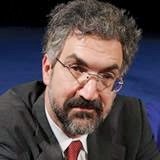Why I Rooted for the Turkish Coup Attempt
Daniel Pipes/National Review Online/July 20/16
Every major government condemned the coup attempt in Turkey, as did all four of the parties with representatives in the Turkish parliament. So did even Fethullah Gülen, the religious figure accused of being behind the would-be take over.
All of which leaves me feeling a little lonely, having tweeted out on Friday, just after the revolt began, “#Erdoğan stole the most recent election in #Turkey and rules despotically. He deserves to be ousted by a military coup. I hope it succeeds.”
Having this nearly-minority-of-one stance suggests that an explanation longer than 140 characters is in order. Three reasons account for my supporting the ouster of the apparently democratically elected and democratically ruling president, Recep Tayyip Erdoğan, by what are apparently the forces of reaction:
Erdoğan stole the election. Erdoğan is an Islamist who initially made his mark, both as mayor of Istanbul and as prime minister of Turkey, by playing within the rules. As time wore on, however, he grew disdainful of those rules, specifically the electoral ones. He monopolized state media, tacitly encouraged physical attacks on opposition-party members, and stole votes. In particular, the most recent national election, on November 1, showed many signs of manipulation.
Erdoğan rules despotically. Erdoğan has taken control of one institution after another, even in the two years since he became president, a constitutionally and historically non-political position. The result? An ever-growing portion of Turks are working directly under his control or that of his minions: the prime minister, the cabinet, the judges, the police, the educators, the bankers, the media owners, and other business leaders. The military leadership has acquiesced to Erdoğan but, as the coup attempt confirmed, the officer corps has remained the one institution still outside his direct control.
Erdoğan uses his despotic powers for malign purposes, waging what amounts to a civil war against the Kurds of southeastern Turkey, helping ISIS, aggressing against neighbors, and promoting Sunni Islamism.
Fighting between Kurds and police has done much damage in Istanbul’s Gazi district.
Military intervention has previously worked in Turkey. Turkey is the country where military coups d’état have had the most positive effect. In all four of the modern coups (1960, 1971, 1980, 1997), the general staff has shown a disciplined understanding of its role — to right the ship of state and then get out of its way. Their ruling interludes lasted, respectively, five years, two and a half years, three years, and zero years.
Turkey would benefit now from a spell of military readjustment, ending Erdoğan’s increasingly rogue rule, even if that meant replacing him with more reasonable Islamist figures from his own party, such as Abdallah Gül or Ali Babacan.
In the memorable words of Çevik Bir, a leading figure in the 1997 coup: “In Turkey we have a marriage of Islam and democracy. … The child of this marriage is secularism. Now this child gets sick from time to time. The Turkish Armed Forces is the doctor which saves the child.” That child is now very sick and needs its doctor. Sadly, the doctor was stopped this time. One can only imagine how badly the sickness will now spread.
Gen. Cevik Bir presented me with a souvenir at Turkish military headquarters in Ankara, 1997.
We have an initial idea how it will look: 6,000 Turks have already been detained, almost 3,000 judges and prosecutors have been fired, and relations with Washington have escalated to near-crisis mode over Erdoğan’s demand for Gülen’s extradition. However rocky the past road, the future one looks yet more harrowing.
I renew my prediction that Erdoğan’s undoing will likely be in foreign affairs. Applying the same bellicosity that works so well in domestic politics to international relations, he will probably meet his doom one time when he’s just too aggressive for his own good. After paying a heavy price, Turkey will be finally be rid of its megalomaniac.
**Daniel Pipes (DanielPipes.org, @DanielPipes) is the president of the Middle East Forum. © 2016 by Daniel Pipes. All rights reserved.






















